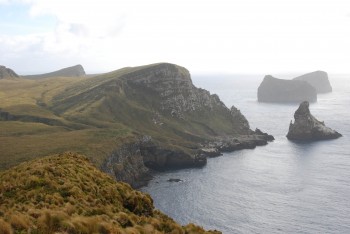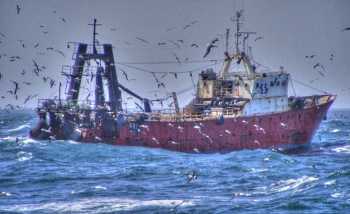The Birdlife International Congress for 2013 is being held in Ottawa, Canada this week over 17-22 June (click here).
Two three-hour workshops are to be held during the congress that are considered to be of particular relevance to the conservation of albatrosses, petrels and shearwaters - of which many species are at risk to fishery-induced mortality and most populations of which breed on oceanic islands, often at risk to introduced predators.
The two workshops are “Fishing for success: reducing seabird bycatch across jurisdictions and gear types” and “A Global Invasive Species Programme: saving birds; restoring habitats; improving livelihoods”.
The following texts are taken from the congress programme.
Workshop 1: A Global Invasive Species Programme: Saving BIRDS; Restoring HABITATS; Improving LIVELIHOODS
The issue: Invasive Alien Species (IAS) are a significant threat to birds and biodiversity. Since 1500, 151 bird species have gone extinct, half of which have been as a result of IAS. This trend continues today with 34% of the world’s 1,313 threatened birds impacted by alien species. This situation is even more acute on islands, particularly oceanic islands, where IAS impact 74% of all threatened birds.
Workshop focus: This workshop will provide an overview of how IAS impact on birds, and what is being done to address the problem. The workshop will also introduce and inform a new BirdLife programme aimed at managing IAS, restoring habitats and saving species around the world.
How the workshop will run: A keynote address will be followed by four case-studies and a discussion on the proposed new programme, highlighting the opportunity for BirdLife to make a major difference for birds and conservation.
Contributors include Alan Saunders (IUCN), Alfonso Aguirre Muñoz (Grupo de Ecología y Conservación de Islas, Mexico), Lolita Gibbons-Decherong (Palau Conservation Society), Mike Wong (Parks Canada/Environment Canada), Kevin Hackwell (Forest and Bird, New Zealand) and Gregg Howald (Island Conservation, Canada).

Plans exist to eradicate the alien House Mouse from New Zealand's Antipodes Island
Photograph by Erica Sommer
Workshop 12: Fishing for Success: Reducing Seabird By-Catch across Jurisdictions and Gear Types
The issue: The BirdLife Global Seabird Programme is a world leader on delivering tangible reductions in seabird by-catch. This has been achieved through the ‘grass roots’ work of the Albatross Task Force (ATF) in South America and southern Africa and our highly successful advocacy work in the world’s five ‘high sea’ tuna management bodies.
Workshop focus: This workshop will showcase our successes, highlight future challenges and address two emerging work areas: (1) gillnet fisheries, and (2) expansion of the ATF into small-scale (artisanal) fisheries and developed countries e.g. Europe.
How the workshop will run: Presentations on the successes and challenges of the ATF and our work in high seas tuna fisheries will set the scene for identifying new partners to engage in seabird by-catch reduction work. We also plan to develop a map of BirdLife Partner interest and capacity to engage with our new gillnet by-catch project.
Contributors include Walt Reid (David and Lucile Packard Foundation), Ben Sullivan and Cleo Small (RSPB), Oliver Yates (BirdLife International Secretariat) and Ivan Ramirez (SEO).

Black-browed Albatrosses attending this fishing trawler are at risk from collisions with warp cables
Photograph by Juan Pablo Seco Pon
John Cooper, ACAP Information Officer, 17 June 2013

 English
English  Français
Français  Español
Español